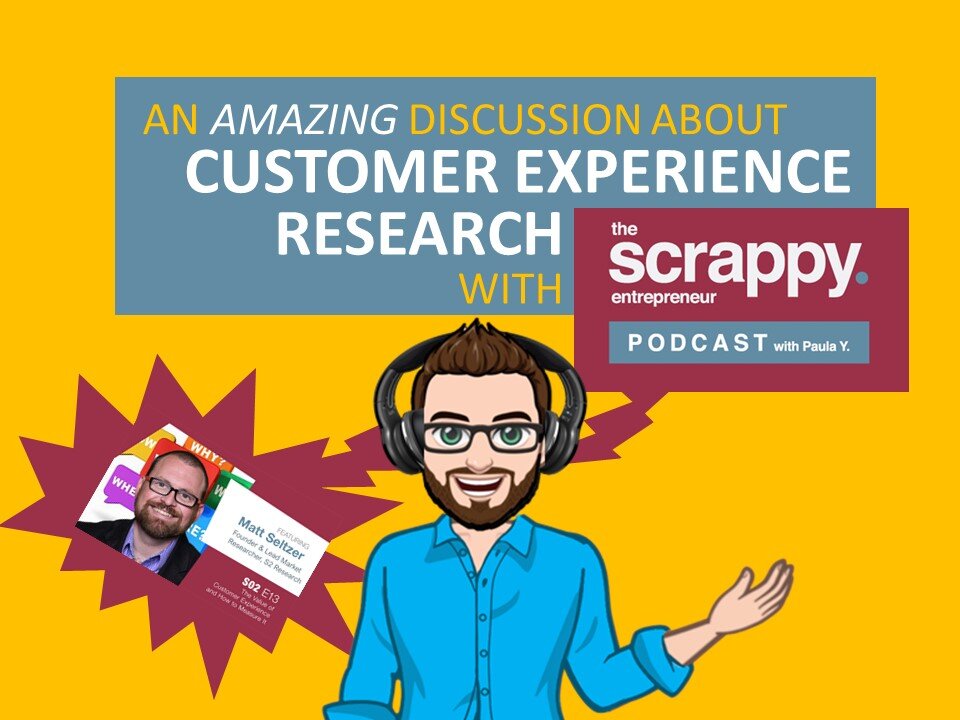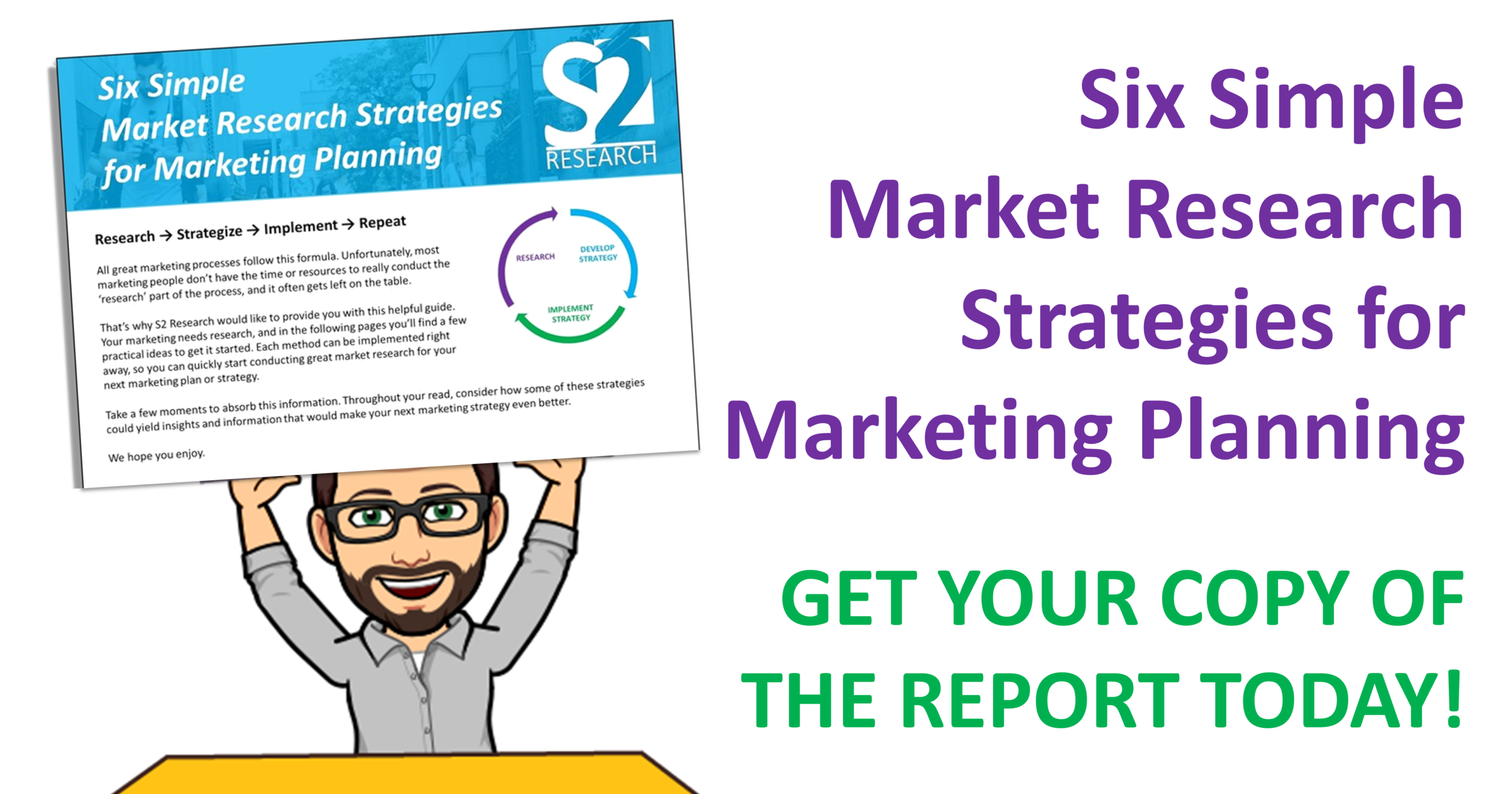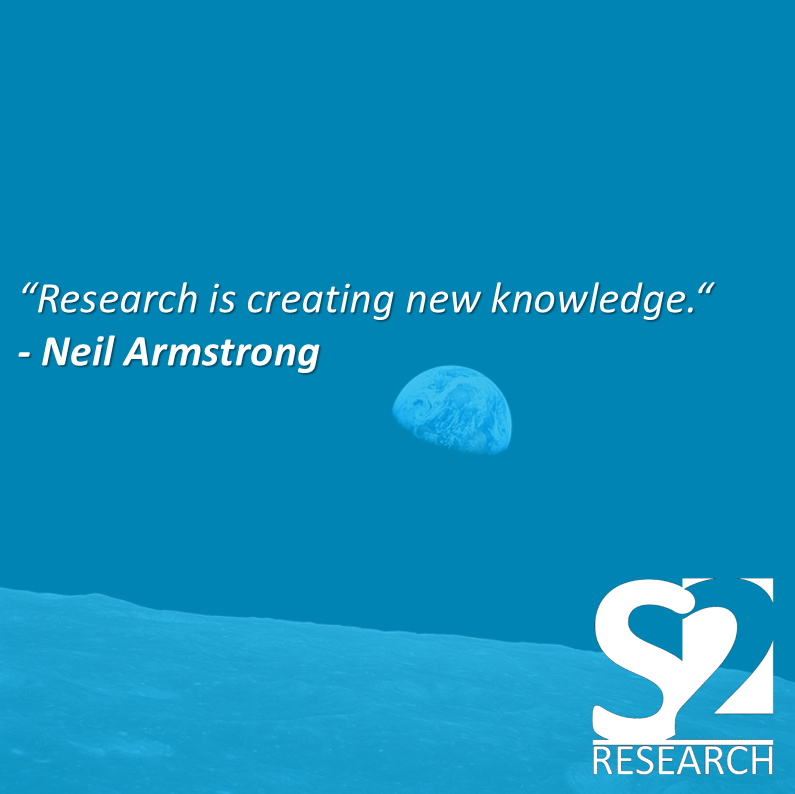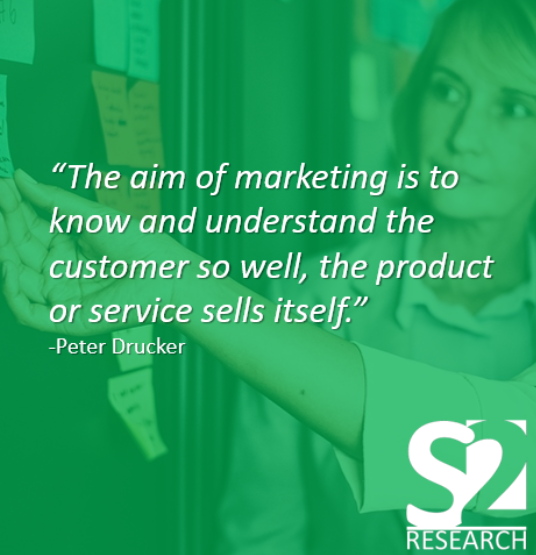Update 8/25/21: We wanted to revisit one of our most popular articles from last year, because, let’s face it, the world has changed and marketing changes right along with it! Take a moment to enjoy this updated take on our take of the 3 Types of Marketing (and why we’re all probably using them wrong!).
Read MoreMarketing Strategy
What It’s Like Working at a Marketing Research Firm? Confessions from a market research intern.
The team at S2 Research was recently joined by a new member, Eric! Eric is an intern with our team, and after working with us for a few months, we asked him to share his experiences in a new blog article. Take a moment to hear what it’s like to work for a market research partner like S2 Research in these true confessions from a market research intern!
Read MoreBuild Your Agency's Marketing Strategy By Understanding Your Clients' 2021 Marketing Goals

The S2 Research Marketing Agency and Client Goals, Objectives and KPIs survey measured how both clients and communications firms feel about marketing measurement in 2021. The survey revealed several insights that, when employed in a marketing agency setting, can help those teams attract and retain more clients, and produce more meaningful marketing (as valued by the clients) as a result.
Read MoreStrengthen Your Marketing With Buyer Personas

If you don’t listen to the SUMMIT Podcast yet, you’re definitely missing out on some incredible content! Hosted by marketing expert and CEO of Hamer Marketing Group Kyle Hamer, the show gives an inside look at all things marketing and sales. Kyle and I met a few weeks ago to touch base, and immediately had a great conversation about Buyer Personas. Wanting to take that conversation to his audience, we connected again and had an absolutely brilliant chat about what marketers and businesses can do right now to start writing, and using, buyer personas in their marketing plans today.
Read MoreHow to Measure Customer Experience to Make Your Marketing Better

I’ve always been a fan of measuring customer experience. The concept makes sense - we’re measuring the entire process behind the hows and whys of why people are doing business with us. When Paula Y reached out to talk about The Scrappy Entrepreneur Podcast, we quickly worked into a really great discussion about the importance of customer experience market research within the worlds of marketing and business. You’re going to dig it!
Read MoreMarket Research and Business Growth on the Everyday Business Problems Podcast
I got a chance to connect with Dave Crysler with The Crysler Club on his podcast, Everyday Business Problems. We talked about market research, marketing, growing businesses, and dealing with those projects amid the Coronavirus. Take a listen, and be sure to let me know what you think!
Read MoreDiscussing The Future of Buyer Personas
The Research Business DAILY Report is one of my favorite resources for information on market research. Everything from insights to ideas to interesting happenings in this industry, it shows up on Bob Lederer’s program. That’s why I was honored when Bob reached out to me a few weeks ago to discuss the two-month-long How to Write a Buyer Persona project I just wrapped up.
Read MoreThe Secret Phrase From Top Marketing Firms
“Let’s run that by research.” This is a phrase you’ll hear a lot at some of the biggest agencies out there. It’s because market research teams, when in-house, help make everything a little bit stronger, a little bit tighter, and a whole lot more accurate. So, to get us going, I thought I’d share a few common market research-related phrases that marketing agencies with market research capabilities are saying, and why they’re so important for those marketing teams.
Read MoreThe Ins and Outs of Market Segmentation
Everyone in marketing seems to be talking about market segmentation lately, and as a market researcher, I’m all for it! Dividing your audience into meaningful chunks helps marketers develop stronger messaging, relevant positioning and more targeted strategies. This means you get more bang for your buck in everything you do.
Read MoreTelling Stories with Numbers – When Public Relations and Research Collide
If you’re like many of the wonderfully creative public relations pros I’ve worked with over the years, numbers and data don’t always flow as easily as messaging and storytelling. That’s why I’ve included some great, practical tips in the following article to help you better communicate numbers.
Read MoreWhat is a Marketing Strategy?
Consider this question: What is a Marketing Strategy? Thinking back to Marketing 101, markets are what are created when a buyer and seller come together. Marketing, meanwhile, is the act of pairing those buyers and sellers – the process of creating demand that drives the two together. A marketing strategy is, of course, the plan for how we get there.
Read MoreSix Simple Market Research Strategies for Marketing Planning

S2 Research has put together a special White Paper to help you get started with market research for your marketing planning process. In it, we’ve included six simple research tactics you can employ right away to help get your marketing planning process kicked off the right way. You’ll also find a few additional surprises and bonuses, so be sure to keep a look out!
Read MoreMeasure What Matters

The biggest thing everyone’s been harping on is ROI. Proving that something works is the backbone for funding, for buy-in, for proving value, and especially for gaining traction with stakeholders. For that to work, it all comes down to being able to measure what matters.
Read MoreA Vital Part of the Creative Process That You’re Not Doing
When it comes to coming up with creative ideas, we all have our strategies. For some, it’s brain storming. For others, it’s walking away and letting the ideas flow free. And still for some, it’s a clever team meeting process that results in kick-ass ideas. But when it comes to most creative processes, there’s a vital part of the creative process that you’re not doing – great pre-research.
See, what every great creative thinker in the world already knows is that their creativity is based on inputs. They can’t create without building blocks, and for creative ideas, that often means having information.
The critical step for creative marketing.
When it comes to marketing, market research is that critical first step in the creative process. Great marketing is built on great ideas, and you need a foundation for those ideas to take hold. What do you know about your audience that you can reinvent? What types of pain-points are they addressing that you can build a campaign around?
Market research can answer these questions, and help you use the responses to guide next steps.
Think back to Marketing 101.
Classically, the marketing process begins by understanding the customer. A great market research foundation facilitates that need. It dissects who your audience is, and how they think about your product and your industry. It also captures their emotions, their goals, their motivations, and their lives.
Essentially, we’re boiling data down into demographics, psychographics and ethnographics, and reformulating it all into something that’s easy to understand. The information is meant to inform, breaking through biases and preconceived notions, so creative team members can immediately grasp it and do something with it.
Start strong, finish stronger.
Putting effort into the beginning of the process sets the tone and the capabilities. This is true of every project you’ll ever do, but in marketing especially this is the case. Great market research is about learning for the sake of inspiration. It starts with data, but it comes together as insights that create ‘ah-ha’ moments for creative professionals.
If you’re spending time analyzing data, make it your goal to only deliver actionable insights. Don’t worry about sharing the whole set of findings with the creative folks. Instead, highlight the two or three datapoints about your audience that float to the top due to their profoundness, or their difference from the norms. Boil it into the few points that matter most, ignore the rest, and use what’s left as the catalyst for great ideas.
Make it easy to understand.
The challenge in all of this isn’t in the data, and it’s not even in the ideas. It’s in the translation of the two.
When communicating data to marketers, the most important thing a researcher can do is make it easy to understand. Creative teams don’t need all the data – they need the most critical insight you can pull from it. And they need them communicated clearly.
To get going, write down your insights, and start to cross out anything that feels redundant. You’re trying to inspire here, and keeping it short and sweet will help you get there.
Next, ask yourself if there’s more interesting ways to communicate the insights. Could you explain through a metaphor? What about giving examples that exemplify how the audiences thinks and feels?
You can also include diagrams, pictures, graphs, etc. if they focus on conveying the most important parts of the information in the clearest, easiest way. Remember, you’re not limited by anything, so how you choose to communicate your insights is completely up to you!
Finally, consider everything you know about copywriting. You want your insights to be as compelling as possible so everyone can understand them, and a strong background in clever copy will get you there. Just like headline copy, you want to keep your insight short and sweet without losing any of the impact.
Deliver it the right way.
The document with which you organize your insights is how your creative team is going to review them, and it’s up to you to organize it the right way. Often, insights will form into a Creative Brief, which will guide the direction of the creative team’s process. Other times, you might create a one-sheet for a team to review, and you can use bullets, infographs and more to convey everything.
However you choose to go about it, let the ideas come together in a way that tells a story. If your first section is about motivation, make your second section play-off that motivation, telling your readers how the audience goes about achieving their motivations. Altogether, the document should come together as a narrative, painting a picture of your research findings.
Do research to do great work.
Research is the foundation for the greatest campaigns in history. It’s up to marketers and market researchers alike to digest research information, and in most cases, that requires a research summary that conveys without causing the Zzzs.
Research can be dry and it can be boring – if it’s presented wrong. But marketers are creative people with great ideas, and they need something more engaging. Remember, research doesn’t stop at the analysis, but goes a step further into the communication and conveying portion. That final step is critical if you want your research to impact your creative. Take the time, do it right, and you’ll be amazed by the results!
How to do Market Research for Marketing

Most people have a vague idea of what Market Research is. But put into practice, that’s not always the case. I wanted to write a little bit about how to do market research for marketing so you can better understand the process that goes into it, and the value that comes from it. Hopefully you’ll be inspired enough to launch your own internal market research project to learn more about your audience!
Read MoreBranding in Marketing

Something interesting in the world of branding happened this week. A principal of a high school in New Orleans politely refused to accept free food from a local Chick-fil-A. His reasoning was that the company’s opinion of the LGBTQ community was out of alignment with the school’s own values, and that it would be disrespectful to his LGBTQ staff and faculty members to accept the gesture.
Read MoreHow to do Branding for Niche Audiences

Learn all about how to reach niche audiences with great lessons from some of the biggest brands in fast food.
Read MoreIf You Know More You Can Do More

When it comes to marketing, we all seem to agree that audience knowledge matters. But with most marketers, knowledge comes from their experience in the industry – and if you don’t have any, tough dice. So, what happens when someone wants to enter a new market or reach a new audience?
Read MoreWhy Market Research?

Since I’ve started in marketing, I’ve often been asked “Why market research?” There’s PR, there’s digital, there’s grassroots, there’s direct, and there’s a few dozen other ways that you can make it in this business. So, why market research?
Let me tell you a story.
Read More











